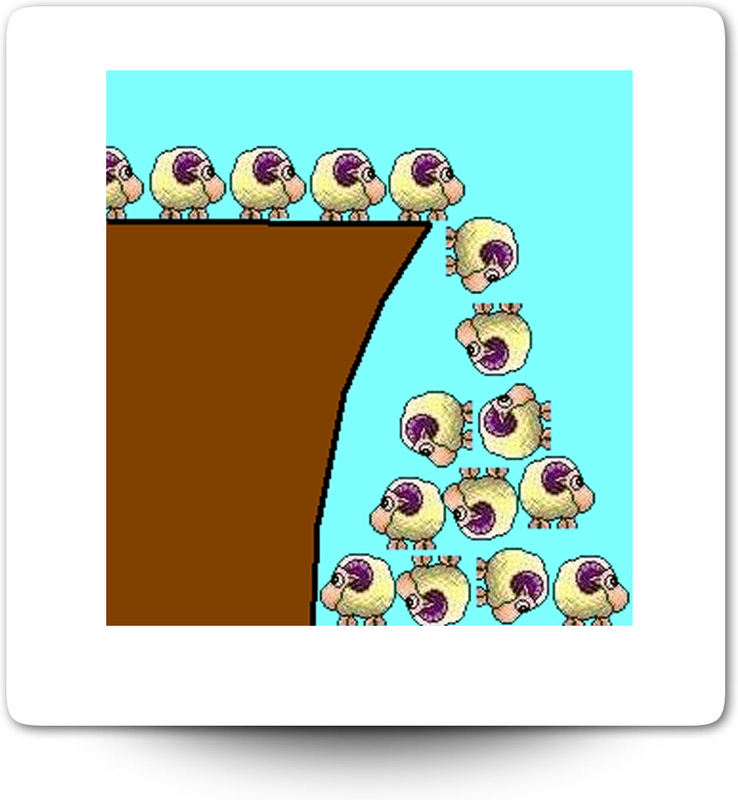|
Information technology has been expanding away from its traditional role of automating and reducing the cost of operational and managerial processes.It is today becoming a stronger force in the quest for new business opportunities. It’s time companies took a structured, systematic approach to examining innovative business models and platforms. -By Philippe Mora
[Thank You HBR | by Rashik Parmar, Ian Mackenzie, David Cohn, and David Gann 02.14] The search for new business ideas and new business models is hit-or-miss in most corporations, despite the extraordinary pressure on executives to grow their businesses. Management scholars have considered various reasons for this failure. One well-documented explanation: Managers who are skilled at executing clearly defined strategies are ill equipped for out-of-the-box thinking. In addition, when good ideas do emerge, they’re often doomed because the company is organized to support one way of doing business and doesn’t have the processes or metrics to support a new one. That explanation, too, is well supported. Without a doubt, if you tackle business innovation systematically—rather than hoping people will get creative during an “innovation jam” or a special offsite—you improve the odds of success (and decrease the chances you’ll be left staring at a blank sheet of paper). Traditional, tested ways of framing the search for ideas exist, of course. One is competency based: It asks, How can we build on the capabilities and assets that already make us distinctive to enter new businesses and markets? Another is customer focused: What does a close study of customers’ behavior tell us about their tacit, unmet needs? A third addresses changes in the business environment: If we follow “megatrends” or other shifts to their logical conclusion, what future business opportunities will become clear? We’d like to propose a fourth approach. It complements the existing frameworks but focuses on opportunities generated by the explosion in digital information and tools. Simply put, our approach poses this question: How can we create value for customers using data and analytic tools we own or could have access to? Over the past five years, we’ve explored that question with a broad range of IBM clients. In the course of that work, we’ve seen advances in IT facilitate the hunt for new business value in five distinct—but often overlapping—patterns. Those patterns form the basis of our framework. We believe that by examining them methodically, managers in most industries can conceive solid ideas for new businesses.
0 Comments
Nice guys may not finish first, according to research coauthored by Nir Halevy of the Stanford Graduate School of Business. In fact, taking care of others in your group and even taking care of outsiders may reduce a nice guy's chance of becoming a leader - by Philippe Mora
[Thank You Stanford GSB | By Aaron Mays 10.11.11] Typically regarded as a common virtue, generosity can also be a sign of weakness for leaders, according to a new study. The research finds that contributing to the public good influences a person's status on two critical dimensions: prestige and dominance. "People with high prestige are often regarded as saints, possessing a self-sacrificial quality and strong moral standards," said Robert Livingston, assistant professor of management and organizations at the Kellogg School of Management, Northwestern University. "However, while these individuals are willing to give their resources to the group, they are not perceived as tough leaders." The researchers define dominance as an imposed alpha status whereas prestige is freely conferred admiration from others. Al Capone, for example, characterizes a high-dominance individual, whereas Mother Theresa represents a high-prestige individual. The study argues that people with high prestige are perceived as desirable leaders in noncompetitive contexts; they are seen as submissive compared to individuals who strive to maximize their personal gains. In times of competition, individuals who are less altruistic are seen as dominant and more appealing as leaders. "Our findings show that people want respectable and admired group members to lead them at times of peace, but when 'the going gets tough' they want a dominant, power-seeking individual to lead the group," said Nir Halevy, lead author and acting assistant professor of organizational behavior at the Stanford Graduate School of Business. Livingston and Halevy coauthored the research with Taya Cohen of Carnegie Mellon University's Tepper School of Business and PhD student Eileen Chou of Northwestern University's Kellogg School of Management. Their study highlights the need to distinguish between different types of status in groups, as well as how intergroup conflict shapes followers' leadership preferences. "There are numerous academic findings on status but we sought to investigate the antecedents and consequences of two distinct forms of status, depending on the context," said Livingston. To test their theory, the researchers conducted three experiments where participants were given the option to keep an initial endowment for themselves or contribute it to a group pool. Contributions either only benefited the contributor's fellow group members, or simultaneously benefited the contributor's group members and harmed the members of another group. The first two experiments found that selfishness and displays of 'out-group hate' - unnecessarily depriving the members of another group - boosted dominance but decreased respect and admiration from others. In contrast, showing in-group love - generously sharing resources with fellow group members - increased respect and admiration but decreased dominance. The third experiment found that "universalism" - that is, sharing one's resources with both in-group members and outsiders - had the most dire net outcomes on a person's status. The researchers discovered that universal generosity decreased perceptions of both prestige and dominance compared with those who shared resources only with members of their group. In short, being generous can boost prestige if an individual is selectively generous to his or her own group; this increases respect and admiration from others. However, being selfish or belligerent (unnecessarily harming members of another group) decreases respect and admiration from others but it increases perceptions of personal dominance. The intriguing consequence is that dominant individuals were more likely than prestigious individuals to be elected as a representative for the group in a mock competition with another group. Thus, being too nice can have negative consequences for leadership. "Being too generous often comes at a personal cost to one's position of strength or power," Livingston explained. "This research begins to explore when 'nice guys' finish first and when they finish last, depending on the group context," Halevy said. "Nice guys don't make it to the top when their group needs a dominant leader to lead them at a time of conflict." The study, "Status Conferral in Intergroup Social Dilemmas: Behavioral Antecedents and Consequences of Prestige and Dominance," will appear in a forthcoming issue of the Journal of Personality and Social Psychology. [Read More: http://www.gsb.stanford.edu/news/research/halevy_nice_2011.html] The great adventure is in discovering what your purpose is, and to live it until your last breath. If you’re reading this article, you’re probably being pulled by an inner calling to do more. That calling is your adventure waiting to happen. What are you waiting for? And what are you willing to do now? -By Philippe Mora [Thank You Psychology Today | By Preston Ni 02.12.12] Helen Keller once wrote: “Character cannot be developed in ease and quiet. Only through experience of trial and suffering can the soul be strengthened, vision cleared, ambition inspired and success achieved.” As we navigate through challenging times toward a better future, it’s useful to visit some tried and true ideas regarding life hardiness and resiliency. This is not meant to be an exhaustive list, but rather a reminder of some existential ideas we sometimes set aside as we tend to the hectic details of daily life. If you find this article helpful, share it with those whom you care about who are in need. There's power in good will reverberated. 1. The power of perspective Life is not always easy. We all know that. How we choose the way we think, feel, and act in relation to life’s challenges can often make the difference between hope versus despair, optimism versus frustration, and victory versus defeat. With every challenging situation we encounter, ask questions such as “What is the lesson here?” “How can I learn from this experience?” “What is most important now?” and “If I think outside the box, what are some better answers?” The higher the quality of questions we ask, the better the quality of answers we will receive. Ask constructive questions based on learning and priorities, and we can gain the proper perspective to help us tackle the situation at hand. “I am not discouraged, because every wrong attempt discarded is another step forward.” - Thomas A. Edison 2. Don’t focus on the mud We should learn from the past, but not be stuck in it. Sometimes life circumstances and personal setbacks can haunt and prevent us from seeing our true potential and recognizing new opportunities. What has already happened we cannot change, but what is yet to happen we can shape and influence. At times the first step is simply to break from the past and declare that it is you, not your history, who’s in charge. Ask empowering questions such as “What matters to me now?” “How can I make a difference in this situation?” and “What’s the next step for my best interest and well-being?” Every moment we’re alive we can make new choices that help us move on and step toward a better future. If we pay attention to only mud on the ground after a storm, we won’t notice that the sky above us has already cleared. Goethe reminds us: “Nothing is worth more than this day.” Don’t focus on the mud. Make better choices today and move on. 3. All you have to do is ask…the right individuals In life we sometimes may feel like we’re walking alone, but we don’t have to be as long as we’re honest with ourselves, and ask for help when needed. You can find strength and support through a “board of advisors” you create. These are your “go-to” people when you’re in need of sound advice, a new perspective, a certain expertise, or simply an empathetic ear. Members of the board can include individuals you know whose opinions you respect and character you trust. Your personal B.O.A. can also include your role models from past and present, historical or fictional. Ask, for example: “What would (role model A) say about my situation?”, or “What would (role model B) do if she were in my shoes?” Asking for help is not the same as complaining. Habitual complainers dwell on what’s wrong. Successful people assume responsibility for finding the support they need to solve the problem. “Normal people have problems. The smart ones get help.” - Daniel Amen 4. Thrive on your strengths while exploring new potential We each have certain dispositions in which we naturally excel. Some of us are great with people, others are handy with tools, yet others thrive on information. A mismatch between what you’re naturally good at and your work in life is wasted potential. There are a myriad of assessment tools available that can help you determine your natural strengths, as well as your areas of greatest potential. For more information regarding this point, see my article Follow Your Bliss: Discover Your True Calling in Life. “When you follow your bliss… doors will open where you would not have thought there would be doors, and where there wouldn't be a door for anyone else.” - Joseph Campbell Much of traditional large-scale manufacturing may cease to exist. Small, agile manufacturers will link with large R&D organizations in order to be associated with the social reputation they develop. And the corporation of the future will resemble a colony of like-minded researchers bounded by a common social purpose and protective of its expertise instead of its intellectual property. -By Philippe Mora
[Thank You HBR | by Ed Bernstein and Ted Farrington | 11:00 AM January 14, 2014] How accurately can we anticipate the future given today’s emerging technologies? Take 3-D printing. Our current model of producing goods is built around large-scale, globally linked manufacturing facilities with massive, complex lines of supply and delivery. What happens when 3-D printers overtake current models in terms of speed and cost effectiveness, allowing goods to be custom made for little cost by localized manufacturing hubs? Will we still need today’s manufacturing model? Through the Industrial Research Institute’s foresights study — IRI2038 — several plausible scenarios of the future of R&D were explored. In one scenario, traditional manufacturing collapses under the strain placed on it by 3-D printing and heightened speed-to-market practices and is largely replaced by local manufacturing networks. |
head of product in colorado. travel 🚀 work 🌵 food 🍔 rocky mountains, tech and dogs 🐾Categories
All
|

















 RSS Feed
RSS Feed